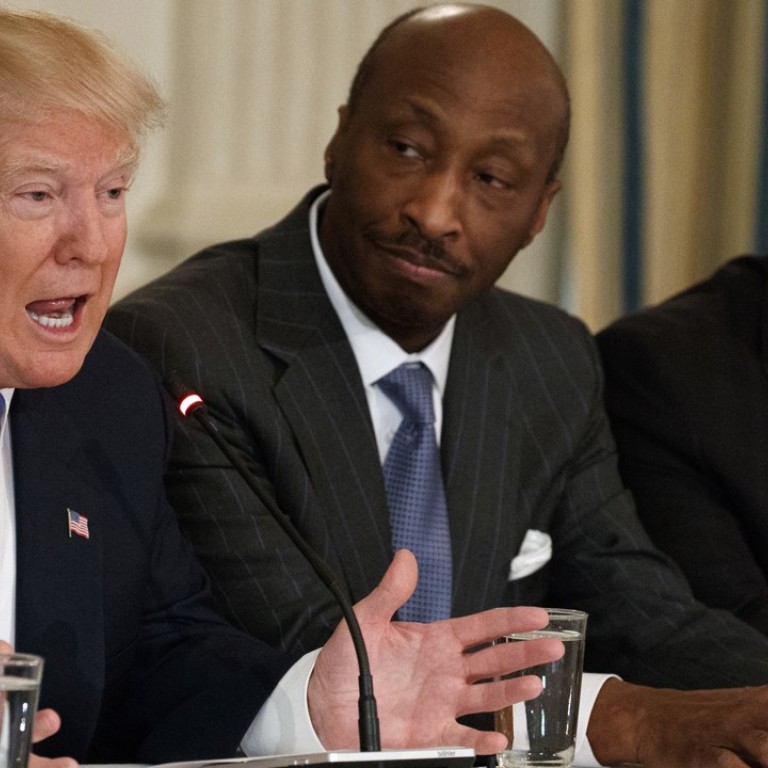
America has no reason to fear the rise of neo-Nazis, as CEOs take a united stand
Robert Delaney says the exit of several company chiefs shows corporate America remains the backstop for minority rights in the country, but warns against complacency as the alt-right tries to gather momentum
A majority of Americans were surprised, if not dismayed, to hear Trump assign blame for the violence in Charlottesville – which took one life and left scores more injured – to those who stood up against swastikas.
The reaction from corporate leaders, military officials and members of Trump’s own party was swift.
This helped allay fears that the US is transforming into a country more closely resembling the dystopian world depicted in The Handmaid’s Tale, a miniseries that has received popular and critical acclaim in the US, at least partly because of its prescience.
Watch: ‘What about the alt-left that came charging?’
Based on the 1985 book by Canadian novelist Margaret Atwood, the story is set in a world where women have lost all rights because fertility rates have plummeted. Women able to bear children are enslaved and ritualistically raped by the country’s most politically powerful leaders, under the pretext of a fundamentalist Christian interpretation of scripture.
Many thought the revelation would end Trump’s candidacy. It didn’t. And with Trump’s continued strength in the polls came a sense among the political left and centre that women and other marginalised groups weren’t as safe as they thought. Atwood’s tale suddenly seemed more prophecy than fiction.
Which brings us back to Charlottesville. Many on the extreme right hope the clash would be just the beginning of an alt-right movement in the US that will continue to gain momentum. Chances of this are slim.
After Steve Bannon’s sacking, the backlash on the far-right is immediate
Watch: Charlottesville victim’s mother to white nationalists – ‘You just magnified her’
The backstop for these rights is provided by corporate America, the institution that has throughout history guided the country’s political direction.
Intel and Under Armour bosses follow Merck CEO and quit Trump’s business council
There’s a reason CEOs have distanced themselves from Trump. It’s the same reason banks and other large companies sponsor LGBT pride marches and fund tech incubators for women-led start-ups: it’s good for business. They know a politicised economy that disenfranchises large groups undercuts aggregate demand.
It may be cynical to imply that corporate America supports minority rights because this position creates wealth, but when neo-Nazis take to the streets with guns and clubs, this deeply entrenched inclination works in everyone’s favour.
This is not to say that every facet of corporate influence on American society is positive. Nor should anyone suggest that Americans should ignore the alt-right and not stand up to them when they take to the streets carrying weapons and swastikas.
Provided the willingness to speak up, and act up, against these groups remains strong, the rest of America doesn’t need to worry about the alt-right agenda going mainstream.
Robert Delaney is a US correspondent for the Post based in New York

